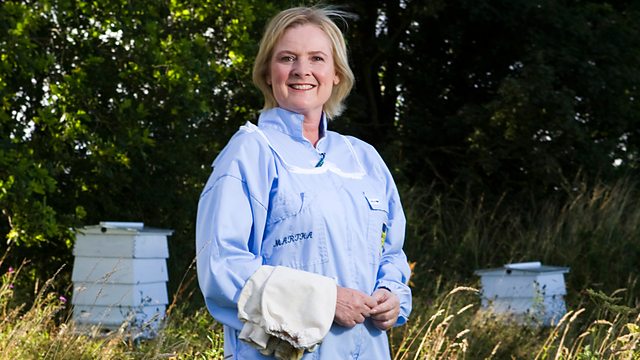God bless the BBC. And I’m not being entirely sarcastic here. There are some things the BBC does very well and one of them, sadly, was The Review Show, its monthly critical round-up of theatre, film, books and new art exhibitions, that it has now, in its wisdom, decided to scrap.
Presumably, the decision was made because the ratings had plummeted — a fact perhaps not unconnected with the programme’s move from BBC2 to the ghetto of BBC4. Yes, being highbrow and involving critics who talked in long sentences, it definitely counted as minority viewing. But isn’t it — or oughtn’t it to be — one of the BBC’s raisons d’être as a publicly funded channel: that it has the space, leisure and leeway to create the kind of quality programming that simply wouldn’t be considered by the commercial sector?
I appeared as a guest critic in a few of its final shows and what I really appreciated was its scrupulous neutrality. Here was I, a known rabid right-winger, appearing in very much hostile territory (Glasgow) among critics with politics markedly different from my own (Paul Morley, A.L. Kennedy, etc.). But I was always afforded enormous courtesy and given free rein to say whatever I liked, while never once being made to feel — as you are, say, on Question Time — that my sole purpose was to give a veneer of false balance by appearing as the representative conservative nutter.
It was on The Review Show that I got to know Martha Kearney, star this week of another show of the kind the BBC does very well. In The Wonder of Bees with Martha Kearney (BBC4, Monday), the World at One presenter introduced us to her secret life as a devoted apiarist.
We first met her at her Suffolk home in last year’s snowbound March getting terribly upset about the survival prospects of her hives. ‘I know they’re only insects,’ she said, but then told us a story so heartbreaking you saw her point. In the winter months, bees get very hungry and need to be kept going with a sugar solution. One day she opened up her hive to find all the bees dead. The sad part was that the bodies were all packed together where the last vestiges of the exhausted sugar solution had been. They had starved to death and, as the keeper charged with their survival, Kearney felt as if she had betrayed them.
There are three more episodes to go, following Kearney’s attempts to make her first proper wildflower honey — as opposed to the bland rubbish produced when bees feed on the ubiquitous oil seed rape. In this week’s episode, we saw her selecting the best hive for the big move to the wildflower zone. Beehives, we learned, are a bit like people — each with their own character, moods and degree of robustness. Some are aggressive; some placid; some hardy; some weak. Oh, and just like in human life, the men are all bloody useless. Without a strong woman in charge they’re doomed.
Bang Goes the Theory (BBC1, Monday) is like a weird throwback to the days of Tomorrow’s World, when the BBC was still capable of making science/technology programmes which a) didn’t insult your intelligence; b) didn’t make you want to kill all the hateful, smug, overchirpy, patronising presenters; and c) drive you insane with maddening, politically correct, environmental propaganda. I mean ‘weird throwback’ in an approving way, obviously.
Admittedly, I say this having only seen this week’s episode on Flooding. Perhaps — I don’t want to disappoint myself by looking up and checking — there have been earlier ones with themes like ‘Dying polar bears: why we’re to blame!’, ‘Recycling: why we need more different-coloured bags in which to spend weeks sifting our rubbish’ and ‘Species extinction: far worse than we thought’. But what greatly relieved me about this one was that ‘climate change’ barely got a look-in. Just a token segment with the Met Office’s ghastly Julia Slingo — and it’s hardly the BBC’s fault that it didn’t question how politicised and unreliable a witness she might be. After all, when she’s got a title like Chief Scientist, you’d not unreasonably assume that she was a go-to authority.
What was missing, though, from its generally sensible analysis of what has gone wrong (too much building on flood plains; too much concrete generally) was an account of all the EU environmental regulation which has prevented our rivers being properly maintained.
It’s this kind of shortcoming which explains why, for its merits, I still believe the BBC should be broken up and sold to the commercial sector. There are whole swaths of the political debate that it remains institutionally incapable of addressing. An inevitable consequence of a fundamental problem: the BBC’s funding arrangement will always mean that to all intents and purposes it remains just another arm of the state.







Comments